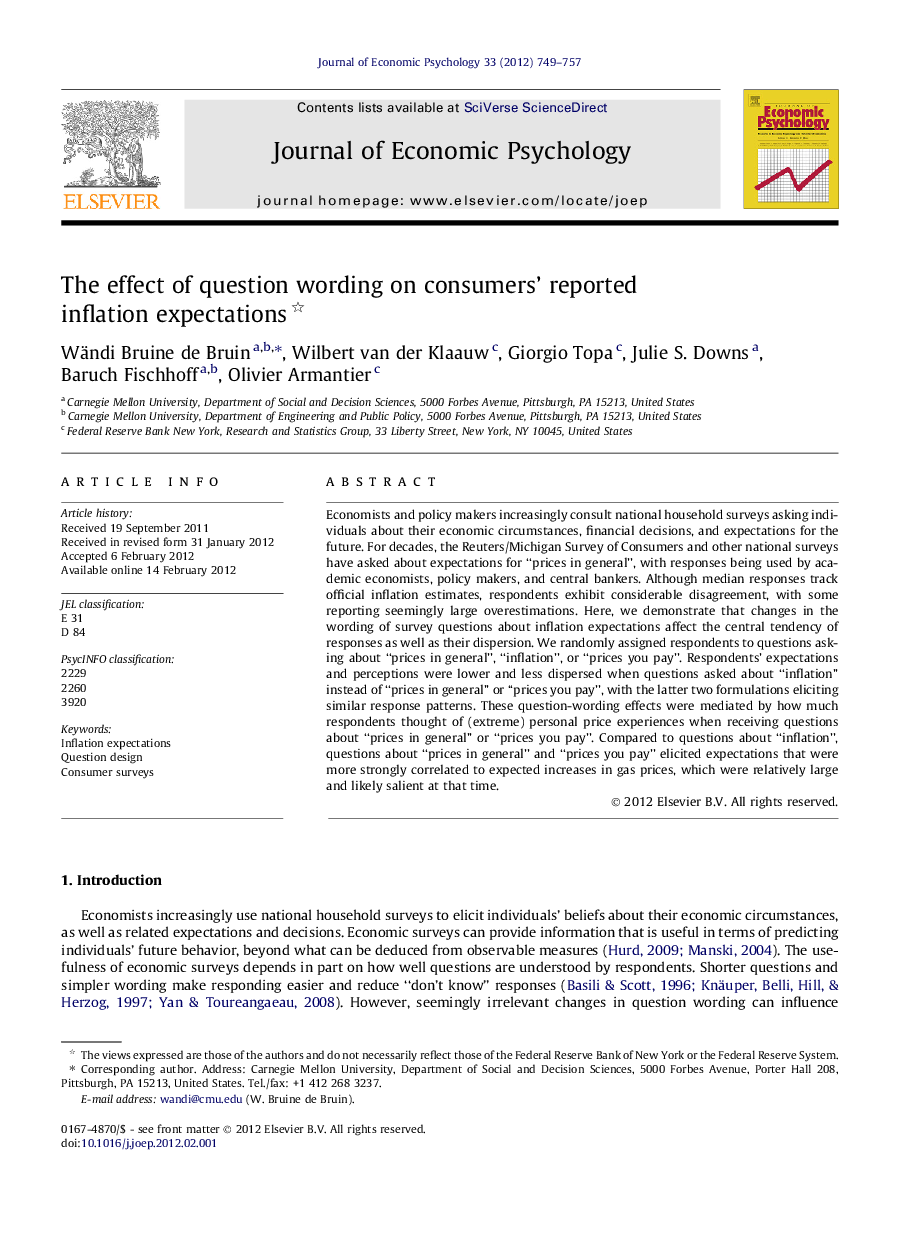| کد مقاله | کد نشریه | سال انتشار | مقاله انگلیسی | نسخه تمام متن |
|---|---|---|---|---|
| 885142 | 912661 | 2012 | 9 صفحه PDF | دانلود رایگان |

Economists and policy makers increasingly consult national household surveys asking individuals about their economic circumstances, financial decisions, and expectations for the future. For decades, the Reuters/Michigan Survey of Consumers and other national surveys have asked about expectations for “prices in general”, with responses being used by academic economists, policy makers, and central bankers. Although median responses track official inflation estimates, respondents exhibit considerable disagreement, with some reporting seemingly large overestimations. Here, we demonstrate that changes in the wording of survey questions about inflation expectations affect the central tendency of responses as well as their dispersion. We randomly assigned respondents to questions asking about “prices in general”, “inflation”, or “prices you pay”. Respondents’ expectations and perceptions were lower and less dispersed when questions asked about “inflation” instead of “prices in general” or “prices you pay”, with the latter two formulations eliciting similar response patterns. These question-wording effects were mediated by how much respondents thought of (extreme) personal price experiences when receiving questions about “prices in general” or “prices you pay”. Compared to questions about “inflation”, questions about “prices in general” and “prices you pay” elicited expectations that were more strongly correlated to expected increases in gas prices, which were relatively large and likely salient at that time.
► We show that question wording affects responses to inflation surveys.
► Inflation surveys often ask people for their expectations for “prices in general”.
► We asked questions about “prices in general”, “inflation”, or “prices you pay”.
► Questions about “inflation” yielded lower expectations and less disagreement.
► Questions about “inflation” also reduced thoughts of large price changes.
Journal: Journal of Economic Psychology - Volume 33, Issue 4, August 2012, Pages 749–757